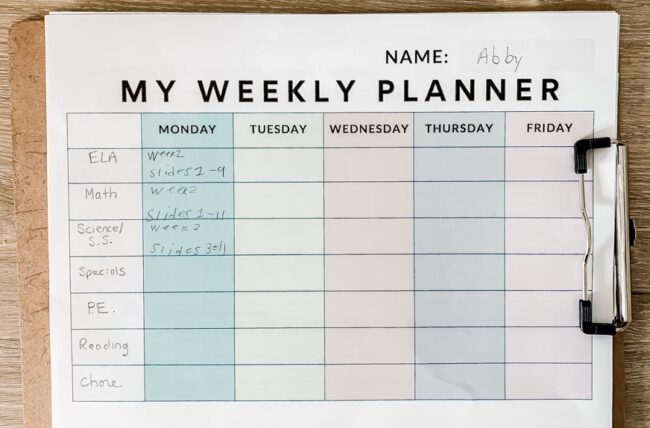Good morning young bud! Today, we’re talking about studies … or how not to repeat a year in college. Here are 8 tips to help you get organized in college and facilitate your entry into this wonderful world (or not).
College. A big step for young graduates who wander the halls, looking forward to their future or not. A stage that can turn into a repeat if you don’t know how to organize yourself, which almost happened to me in my first year!
Today, after having obtained my Bachelor’s degree and having started the second year of my Master’s degree, I think I have finally understood how to organize my time!
We’re talking about studies… or how not to repeat a year in college. I give you here 8 student tips to better organize yourself in college and facilitate your entry into this wonderful world (or not).
When you arrive in your first year, you wonder how to assimilate these mountains of courses, all these new subjects, these 3 hours of courses in a row, sometimes finished the courses at 8 pm, this freedom to finally be considered as a responsible adult or not again!
To cope with all this novelty I have gathered for you, young grumpy, the keys to my little success: my 8 tips for students to better organize themselves in college. Organizational methods that I wish I had known before entering the wonderful and decadent universe that is college.
1. Never miss classes you will force yourself

This myth that I often heard when I was in high school: “Oh, don’t worry, even if you don’t go to class you’ll get the lecture, in college, everyone passes on the lecture anyway”-insert a hearty laugh at the end. This is WRONG Jeanine.
First of all, it’s very difficult to ask someone else for the class (unless you were sick as an old raccoon that day, in which case you’re forgiven.)
Secondly, the course is not the same, you can come across a course with completely incomprehensible notes, spelling mistakes, missing parts, in short, it’s a complete mess.
So don’t miss the courses, it will allow you to be always up to date, to have your own courses clear and not to ask anything to anyone!
2. Go to bed early and get into the habit
The ultimate mistake not to make when you’re in college. Going to bed late, because when you eat 3 hours of Labour Law in the morning, I can assure you that your neurons, barely awake, are going to do everything they can to get you back to sleep on the table with drool in your mouth, and the snoring that goes with it.
Just to say: in every class, there were at least 2 people at MINIMUM slumped on a table lost at the end of the amphitheater and it was not glorious to see. No more sincerely, the most important thing is to get at least 5 sleep cycles, which is equivalent to 7 hours and 30 minutes of sleep.
The brain needs REM sleep, a time when the brain processes information very efficiently, of about two hours per night. Sleeping little prevents the memory from being efficient, which is logical. Try as much as possible to go to bed around 10 pm.
Because college is not high school, classes can start as early as 8 am, and if you have to take the train (like me) you have to wake up at 6 am or less. So Jeanine, take your chamomile tea and go to bed early so you don’t have sleeping neurons the next morning!
3. Buy a tablet or a pc and do it

I know that not everyone can afford a computer or a tablet when they go straight to college (personally, I stole the tablet from my daddy, hi daddy!). But, if you save your money for 2 months, you can easily get a second-hand computer or a tablet (with keyboard) to take your classes.
I tried to take the classes by hand in L1 and what can I say… it’s just impossible. The teacher talks way too fast to be able to write everything by hand, even to take notes. I lasted 2 weeks by hand, only to have to ask for the lectures (shame) because my notes meant nothing.
I searched just for you and found this Huawei tablet: right here with a foldable keyboard right here. It’s about 150 euros and it will change your life, believe me! (and don’t forget that it’s really useful for the classes when the teacher asks you to do PowerPoint or group work!)
4. Take your classes in note form
Aaah the notes. It was a big mystery to me in L1! I finally figured out how to take notes only in L2. (That must be why I almost failed my L1 ahum pass). I’ll give you a concrete example, young grump.
Here’s an excerpt from my L1 classes (remember):
“International sources are superior to the law (article 55 of the constitution) according to this text ratified treaties have a higher authority than laws.”
Transformation into a note :
International sources > law (art 55 C) so treaty ratified to an authority > law .
It is clear here that I use my codes to translate superior with > or <. And for the rest, I delete what is too much and I leave only the important part to remember. It’s very simple, but you have to invent your own codes so that it becomes automatic! This will allow you to reduce the number of pages of your courses, assimilate with your own keywords, and to pre-format your cards.
5. Plan your week

Planning. Something almost everyone loves, except me. Having a planner, decorating it, writing little notes. It’s not for me. I need something that I always have on hand, that is quick and convenient = my laptop.
So I can recommend, as a former student and essay writer from wowessays free online application to organize my week: Digical! (And no, I’m not a sponsor) it allows you to enter your to-do’s, your events and find everything in a widget as a list for each day! I find it much more customizable than the basic “Google Calendar”. If you want to have a look at it, it’s right here.
I suggest you enter all your class hours, with the names of the rooms and the teachers who lead the class. As soon as you know that you have an assignment or an exam on a specific date, you take out your laptop like Zoro and you note it in your little electronic agenda so you don’t forget.
Then whenever you find time, for example, if you finish at 3 pm on Tuesday, you put 2 hours of revision from 3 pm to 5 pm in the library. Or if one day you have an absent teacher for a whole afternoon, which happens VERY often, think about setting aside 2 short hours again for your revisions.
Your laptop will become your number one manager and will allow you to optimize your time!
6. Go to the library
The famous BU as everyone calls it. It will be your savior when you have no concentration at home, personally, as I explained in this article on motivation, I am obliged to work outside my home to be concentrated.
Being at home is the best, but your head is always elsewhere because you are at home! The dishes to do, a machine, the shopping, the cat who comes to lie on your courses, your family who solicits you… in short a real tornado of deconcentration.
Libraries are the “rare” places reserved for revision and research, so they are specially designed for this purpose. You will find all the books you can think of that will help you understand and integrate your subject. The library at your university is easy to get to, free, quiet, and seeing others working around you makes you want to get started too!
7. Doing flashcards will motivate you

Aaah the index cards! Another thing I only managed to master in L2. In the beginning, my index cards looked exactly like the original course, only with fluorescent colors, so I wasted a lot of time rewriting everything by hand. Which is very stupid, let’s face it.
But then I found out that I was much more comfortable making flashcards on the computer! I prepare my cards whenever I have a little time on my hands, like on weekends!
What I do is open two windows, one that contains the course and a second where I write my cards. Then I organize it by writing down the main headings first, and I transform the course into notes and delete the things that are not important as I showed in point 4. I put in bold the things that should not be forgotten, the dates, the names, the methods used, etc …
On the other hand, a friend of mine prefers to write her cards by hand on A4 sheets and she does it very well! Try several methods and apply the one that suits you best, no method is THE BEST, only the one that suits you!
In short, the worksheets will allow you to synthesize, understand and assimilate the course you have written down. They will also help you save time in your revisions. Because between revising 50 pages of lessons and revising 15 cards, I quickly make my choice.
Attention: you must have finished all your cards at MAXIMUM 1 month before your exams, most of the time all the courses are finished (except the TD). Your finished cards will allow you to organize final revisions, which we will see in point 8.
8. One month before your exams, you will organize a revision schedule
That’s it, you’ve got your exam dates, you have no choice but to go for it! So we’re going to organize ourselves in several steps:
- You plan your weeks by prioritizing the subjects that are not well assimilated at the beginning of the revisions.
- Once again, we will revise in the library (you will not escape it!) the calm which reigns there will help you to concentrate.
- We revise 2 to three subjects per day. One in the morning, one in the afternoon and one in the evening, the evening one is not obligatory, but it is a plus.
- We allow ourselves breaks: at noon to eat, and every 2 hours a break of 10 to 15 minutes.
- The most complicated subjects are studied in the afternoon, just after eating and taking a big break to get back to it!
- We reread our cards aloud in our head, and we try to understand and not just read aimlessly.
- You turn off the 4G on your cell phone. You definitely don’t need it when you’re studying, right?
- Always stay hydrated, exercise, and eat right! Keeping a healthy lifestyle and taking care of yourself from the inside will keep you at your best!
And that’s it, you’re ready for the new adventure that is college! A wonderful world is full of loose sheets, group work, and crowded lecture halls. Don’t hesitate to let me know if you want more advice!
